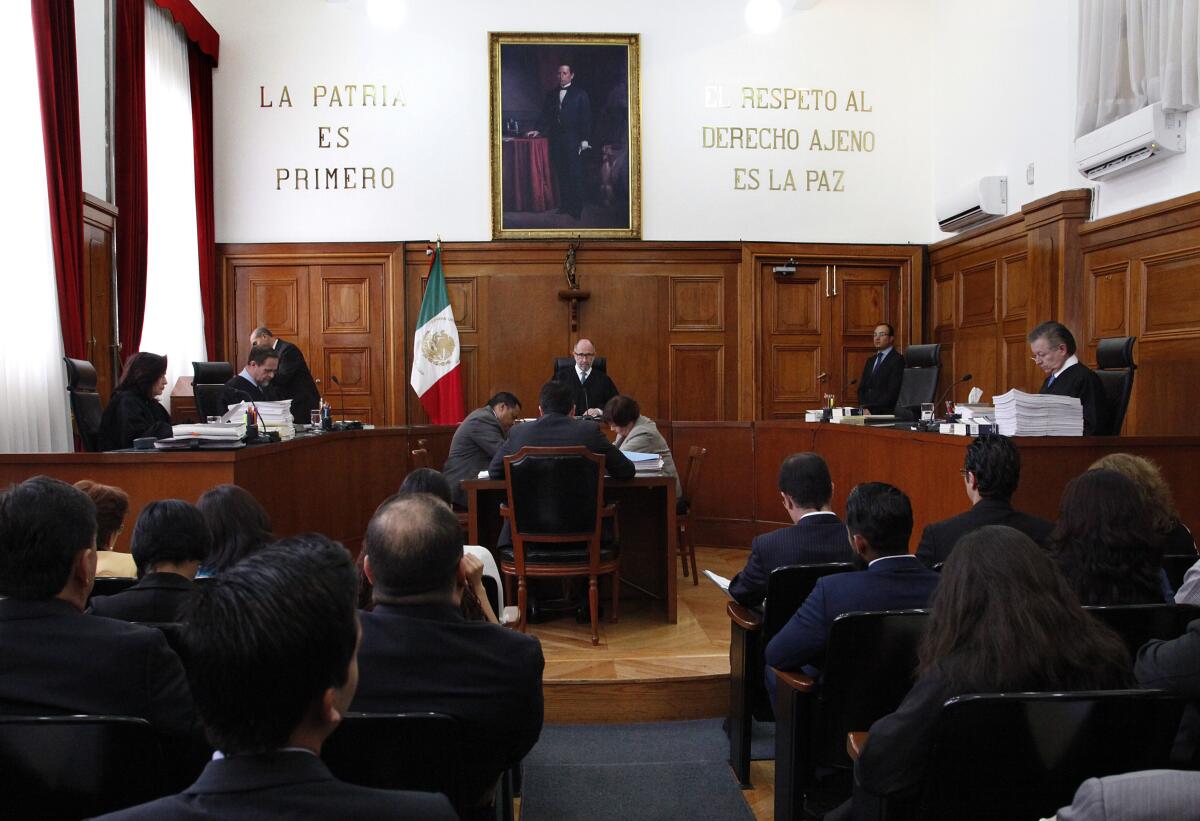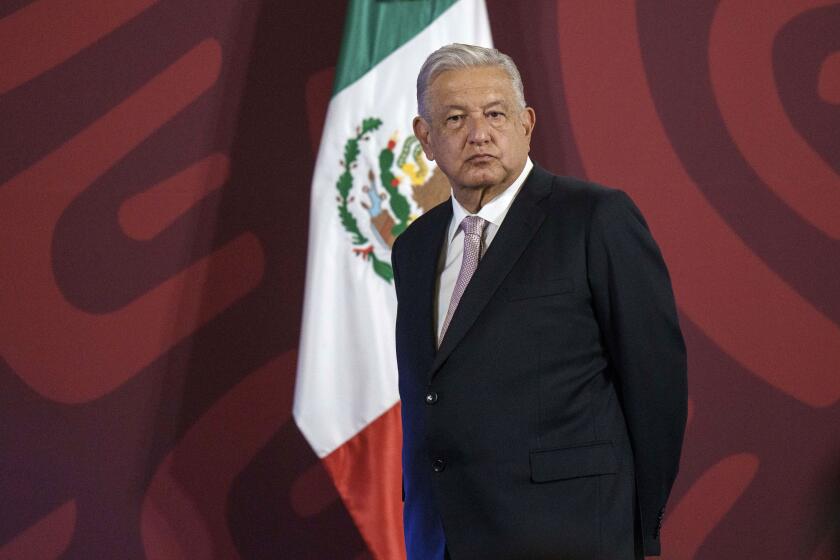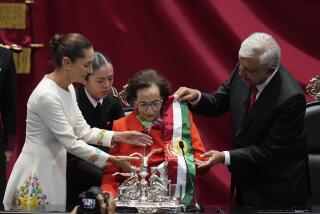Mexico’s Supreme Court elects first female chief justice

MEXICO CITY — Mexico’s Supreme Court elected the first female chief justice in its history Monday.
Justice Norma Lucía Piña was sworn in for her four-year term as the head of the 11-member body, pledging to maintain the independence of the country’s highest court.
“Judicial independence is indispensable in resolving conflicts between the branches of government,” Piña said Monday in laying out her plans. “My main proposal is to work to build majorities, leaving aside my personal vision.”
As chief justice, Piña will also head the entire judicial branch. She is not considered an ally of President Andrés Manuel López Obrador, and opposition parties welcomed her election.
The 6-5 vote by her fellow ministers Monday came despite pressure by López Obrador on the ministers.
López Obrador had backed another female justice, Yasmín Esquivel, for the top post. But allegations arose recently that Esquivel might have plagiarized an academic paper to get her bachelor’s degree in the late 1980s.
Yasmín Esquivel Mossa, a justice on Mexico’s Supreme Court, has been accused of plagiarizing her 1987 undergraduate thesis.
The public university where she got that degree is still studying the case; her thesis, presented in 1987, was identical to one presented a year earlier. Esquivel said the earlier thesis copied her later work.
The president has pushed a number of controversial laws through Congress, only to see them blocked by the courts, and getting an ally elected as chief justice was seen as key for López Obrador.
On Monday, he said “the judicial branch has been kidnapped ... has been eclipsed by money, by economic power.”
However, Sen. Olga Cordero, López Obrador’s former interior secretary, welcomed Piña’s election.
“Now is the time of human rights, the time for women,” Cordero wrote in her social media accounts.
More to Read
Sign up for Essential California
The most important California stories and recommendations in your inbox every morning.
You may occasionally receive promotional content from the Los Angeles Times.










